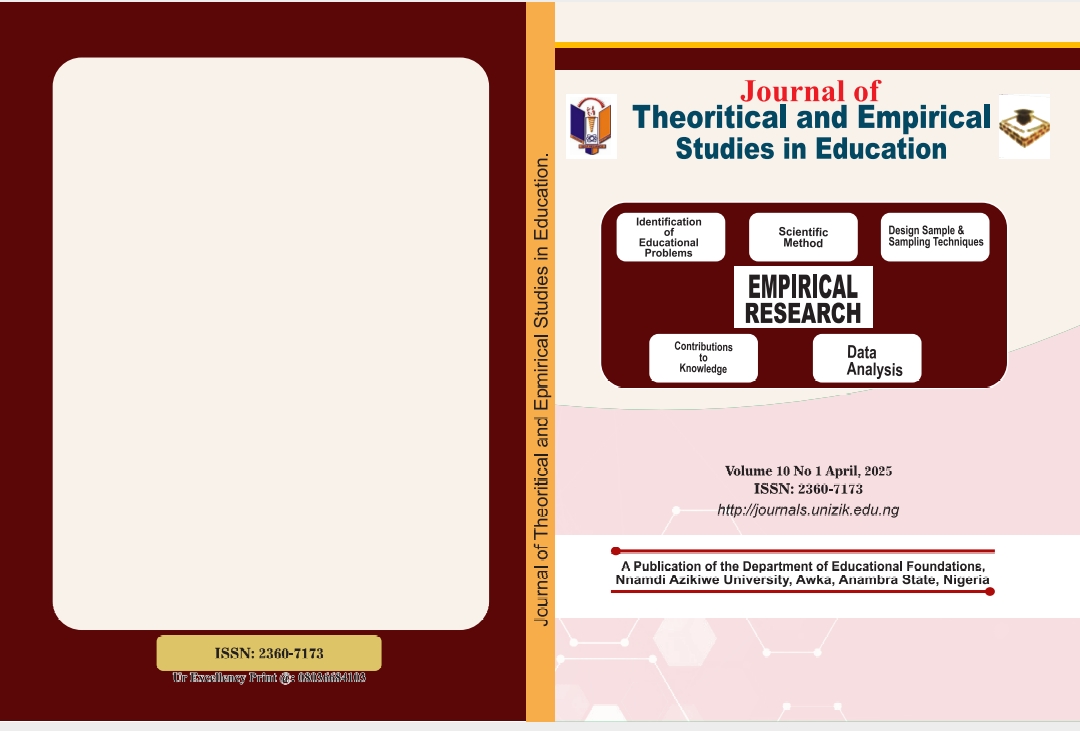Assessment and Evaluation of Classroom Management in Teaching a Class with Acting-Out Students: A Case Study of an All-Inclusive Class
Keywords:
Assessment, Evaluation, Classroom Management, Teaching, Acting Out, Students, All-Inclusive ClassAbstract
This study explored the assessment and evaluation of classroom management strategies employed in an all-inclusive class characterized by students exhibiting acting-out behaviours. The research sought to identify effective practices that
enhance learning outcomes and foster a positive classroom environment while addressing the diverse needs of students. The population of the study was made up of 200 teachers teaching in an incisive classroom. The study was carried in all the inclusive schools in Anambra State. Utilizing a quantitative approach, data were collected through questionnaires, providing insights into their experiences and perceptions regarding classroom management in inclusive settings. The instrument was constructed and validated by an expert. The reliability was obtained using Cronbach’s alpha method and reliability coefficient of the instrument is 0.53 and the
data collected were analyzed sing SPSS with the mean and standard deviation as the statistical tools. Key findings reveal that teachers frequently encounter aggressive, abusive words, opposing school authority, students not complying with the instructions and difficulty in capturing their attention during lesson as acting-out behaviours an inclusive classroom. It also reveals that strategies that are most effective in balancing and controlling an inclusion classrooms are positive reinforcement, individualized learning strategy, kind words/advise as well as discipline the offenders with cane. Recommendations include fostering collaborative environments where teachers can share best practices and support one another in managing classroom dynamics. The implications of this research extend
beyond individual classrooms, suggesting that educational institutions should prioritize comprehensive training programs that focus on inclusive practices and behaviour management strategies. Ultimately, this study contributes to the broader discourse on inclusive education by providing valuable insights into the complexities of managing acting-out behaviours and highlights the need for
continuous improvement in teacher preparation and support systems. By addressing these challenges, educators can create more inclusive and productive learning environments that cater to the diverse needs of all students.




